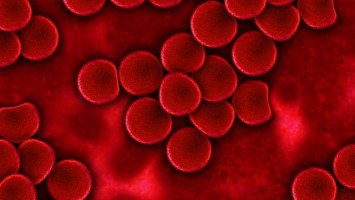
Data obtained by the All-Party Parliamentary Thrombosis Group (APPTG) reveals that of the patients who died of cancer in the previous three years, 2.6% also had venous thromboembolism (VTE) - blood clots - listed on their death certificate as a cause of death.
Despite the links between blood clots and cancer deaths being well established, the APPTG’s research found that many hospitals are not taking appropriate action to reduce the risk to patients.
Less than half of Hospital Trusts are providing patients with both written and verbal information about the risk of developing a blood clot during cancer treatment, and only 41% of Trusts have a dedicated policy or pathway for the risk assessment and management of suspected blood clots in patients receiving chemotherapy.
The findings of this report paint a worrying picture for cancer patients across the whole of England and Wales.
Potentially avoidable deaths from VTE are occurring in our hospitals; a risk that could be prevented by increasing clinical awareness, risk assessing patients and prescribing preventative treatment, and by providing patients with basic information.
The APPTG received data from 92 Hospital Trusts and the Office for National Statistics through Freedom of Information requests.
The key findings of the Venous Thromboembolism (VTE) in Cancer Patients: Cancer, Chemotherapy and Clots report are:
Of the patients who died of cancer in the last three years, 2.6% also had VTE listed on their death certificate as a cause of death.
This accounts for an average of 3,988 deaths per year.
Only 41% of NHS Trusts have a dedicated policy or pathway for the management of suspected VTE in patients receiving chemotherapy.
Across all regions, just under half of Trusts are providing patients with both written and verbal information about the risk of developing VTE during chemotherapy; what symptoms to look out for and what action they should take if they suspect a Deep Vein Thrombosis or Pulmonary Embolism.
The incidence rate of VTE in cancer patients varies by region, with 2% in the South of England yet 3.6% in Wales.
On average, 1.7% of cancer patients in England and Wales have also been diagnosed with VTE over the past three years.
Death rates for patients who died of brain, lung and bladder cancers - where VTE was also implicated – were particularly high at 2.6%, 2.5% and 2.3% respectively (in 2014).
Andrew Gwynne MP, Chair, All-Party Parliamentary Thrombosis Group said:
“It is a tragedy that in today’s NHS a patient can beat their cancer, only to then die of a clot. We hope that by raising awareness of this overlooked issue, we can drive up patient safety and provide better outcomes for patients.”
Eve Knight, Co-founder and Chief Executive of the charity AntiCoagulation Europe said:
“It is not always widely known that cancer patients have a four to seven-fold increased risk of developing a blood clot compared to the general population. It is vital that we raise awareness of this and the importance of staying on the medication to treat the blood clot for at least six months in order to prevent unnecessary deaths.”
Source: APPTG
We are an independent charity and are not backed by a large company or society. We raise every penny ourselves to improve the standards of cancer care through education. You can help us continue our work to address inequalities in cancer care by making a donation.
Any donation, however small, contributes directly towards the costs of creating and sharing free oncology education.
Together we can get better outcomes for patients by tackling global inequalities in access to the results of cancer research.
Thank you for your support.